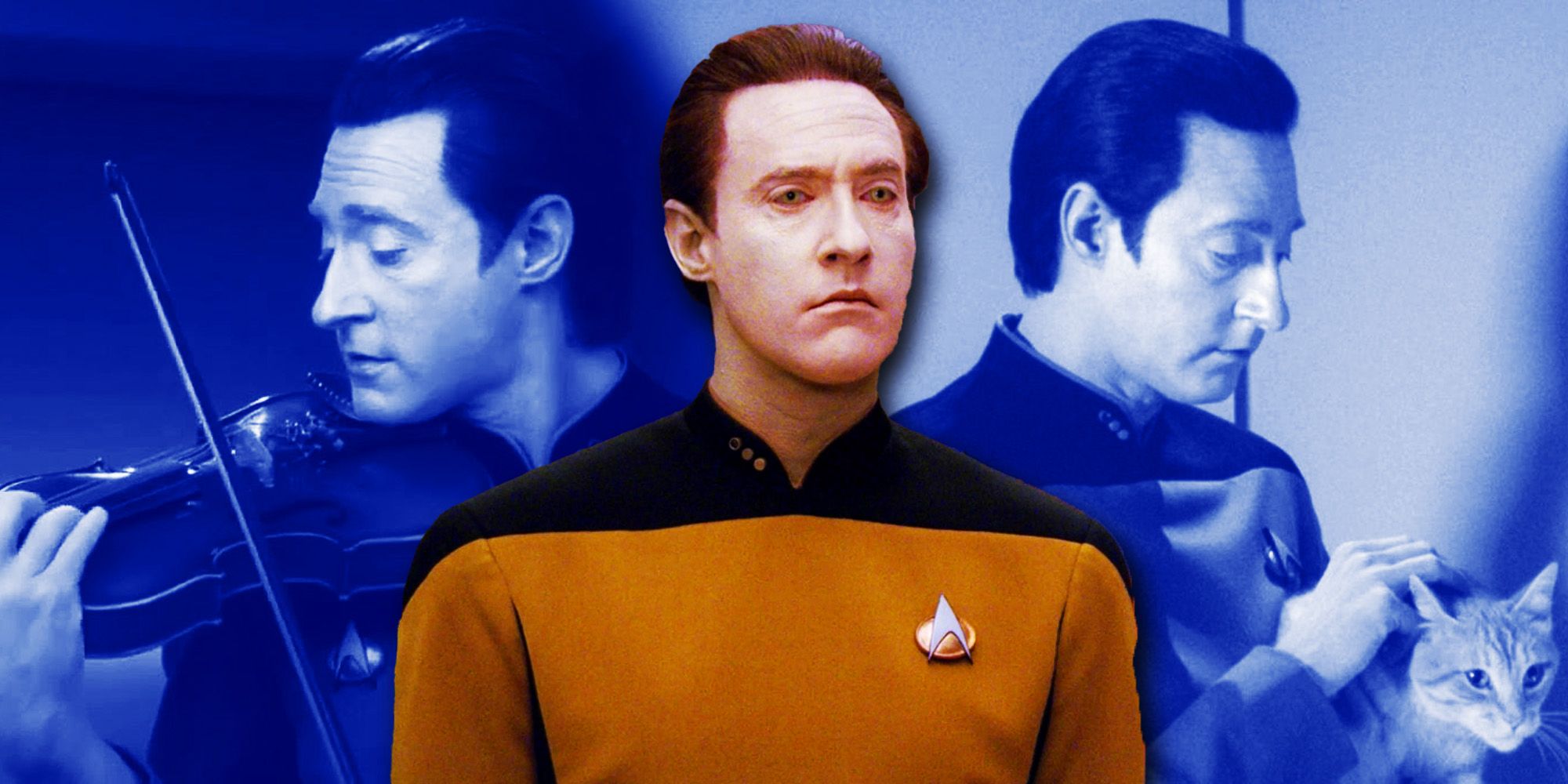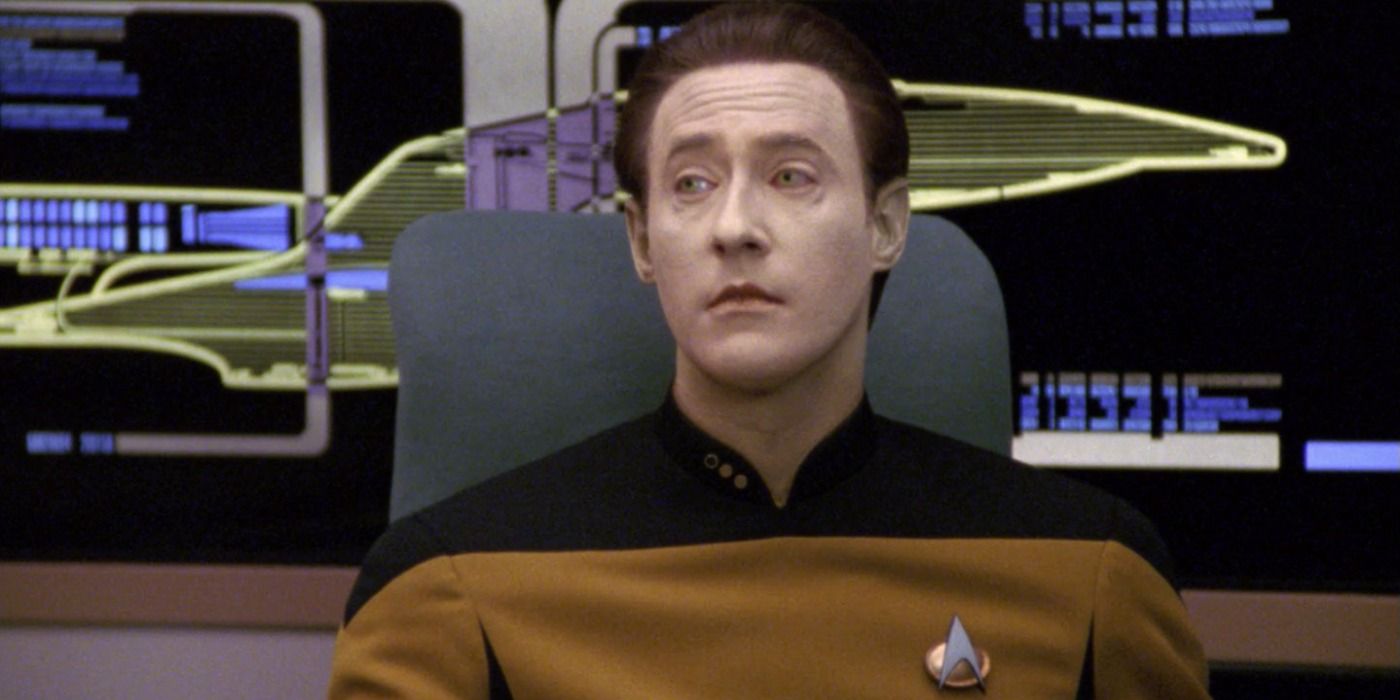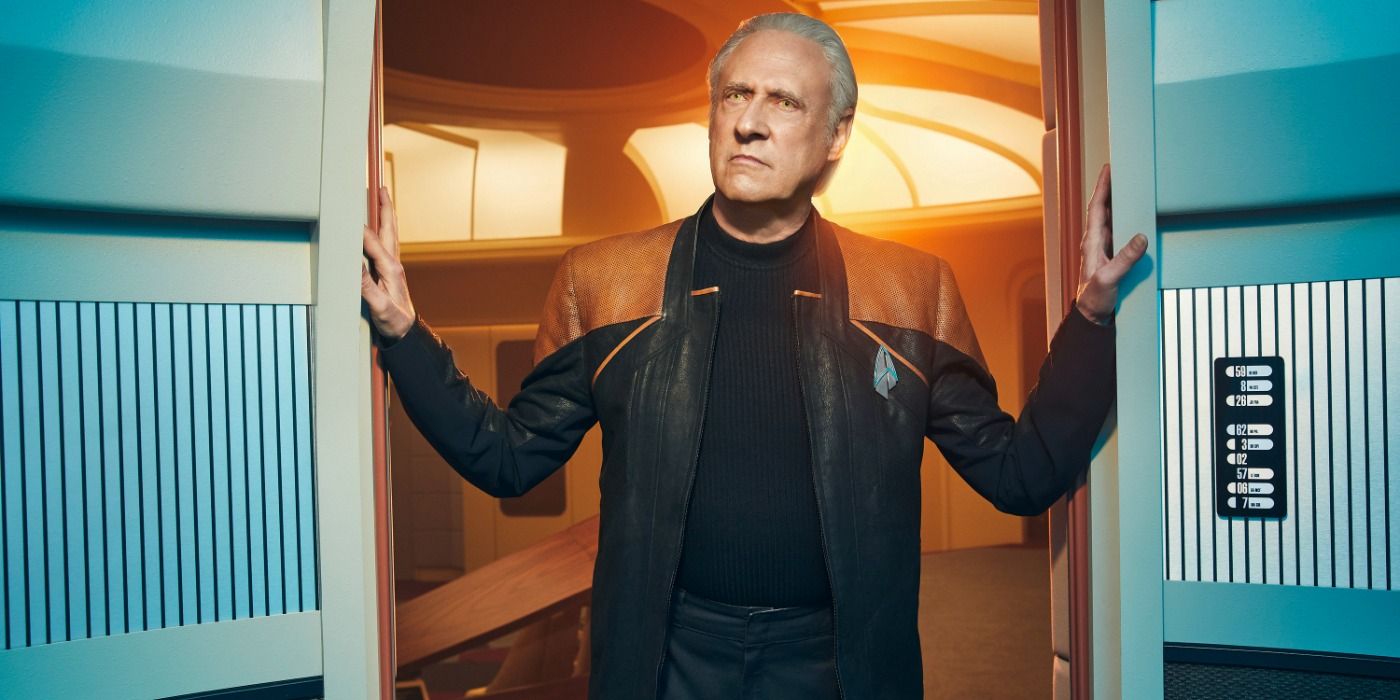Lt. Commander Data (Brent Spiner) from Star Trek: The Next Generation is a beloved character for many reasons, and he has become a particularly important figure for people with autism and other forms of neurodivergence. The Cleveland Clinic defines neurodivergent as a term describing "people whose brain differences affect how their brain works." Similarly, Data was different from many of his peers among the USS Enterprise-D crew. Not only was he an android, but his behavior and ways of thinking differed from that of his coworkers and friends. Much like Spock (Leonard Nimoy) before him, Data became a relatable character for many people who felt like they did not fit in.
Though the crew did not usually treat Data differently, outsiders sometimes treated him as something "other." The most notable example comes in the TNG season 2 episode "The Measure of a Man," when Data's identity as an individual is put on trial. Throughout the episode, Dr. Bruce Maddox (Brian Brophy) refers to Data as an "it" and insists that he is the property of Starfleet rather than his own person. Thankfully, Captain Picard (Patrick Stewart) defends Data's right to determine his own destiny, but this episode shows how people with neurodivergent brains often feel. By the end of Star Trek: The Next Generation, Data has grown a lot as a character. He may not have technically achieved his goal of becoming human, but Data was human in all the ways that mattered.
Why People With Autism Find Data Relatable
Data wished more than anything to be human, and over the course of Star Trek: The Next Generation, he searched for his humanity. The android tried out various human hobbies, such as painting and playing the violin. Like many people with autism or other forms of neurodivergence, Data sometimes became fixated on these hobbies. Data often missed social cues that were obvious to others or misunderstood the meaning of idioms. He took things literally and did not always understand when people were joking. In the TNG episode "Tin Man," Data meets an unusually empathetic Betazoid who cannot sense any emotion from Data. This troubles him, but the man tells Data: "Perhaps you're just different. Not a sin, you know, though you may have heard otherwise." Though Data was constantly striving to be more human, he failed to see that he already possessed a type of humanity.
In her chapter from the book Autism in Film and Television, Dr. Ina Rae Hark points out that “Data may not have human emotions, but there are many indications that he has android equivalents.” Throughout The Next Generation, Data shows that he cares about the people around him in many different ways. He mourns when he loses people close to him, he has an obvious affection for his pet cat, he goes out of his way to help people in need, and Data connects with children who need a friend. These examples, along with so many others, demonstrate that Data does feel, in his own way. As Dr. Hark puts it: "Data, that most atypical android curiosity, can’t read his own feelings as feelings, but that doesn’t mean the feelings are inauthentic." People with neurodivergent brains may have difficulty understanding their emotions or may express them differently, but that does not make them any less valid.
Why Data's Picard Season 3 Upgrade Works
In Star Trek: Picard season 3, Data receives the ultimate upgrade. His consciousness is combined with that of his brothers Lore and B-4, as well as that of his daughter, Lal (Hallie Todd). Not only does he now have the ability to experience more organic emotions, he also receives a more human-like, synthetic body.
While there was nothing wrong with Data before this upgrade, he clearly felt like he was lacking something. Much like someone with neurodivergence may use medicine or therapy to improve their quality of life, this upgrade does not change who Data is as a person, but just helps him to feel more like himself. Data's journey on Star Trek: The Next Generation and beyond made him a hero to many autistic and neurodivergent viewers.



